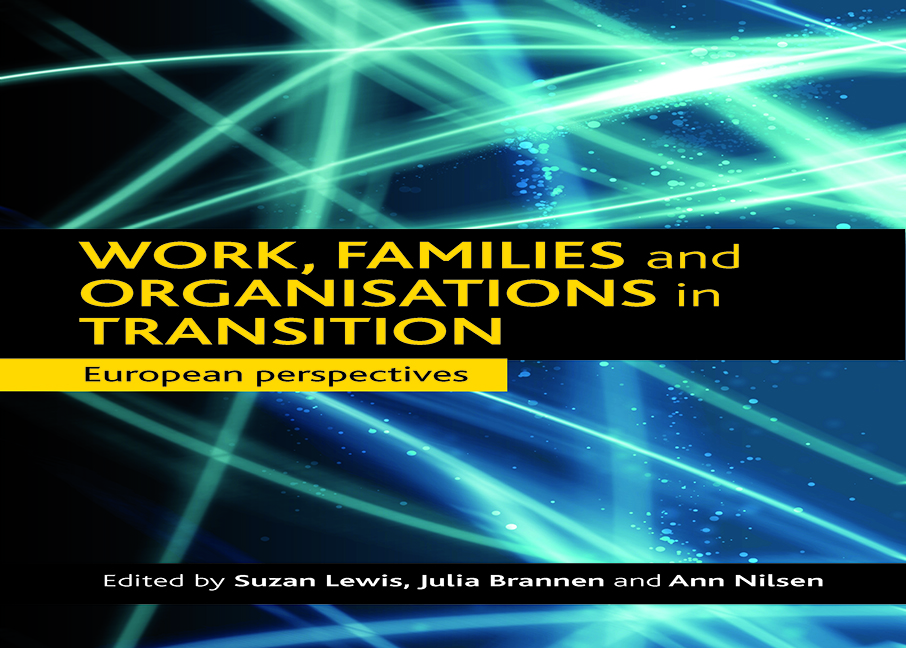Book contents
- Frontmatter
- Dedication
- Contents
- Acknowledgements
- Notes on contributors
- one Work, family and organisations in transition: setting the context
- two Research design and methods: doing comparative cross-national research
- Part One Public sector organisations
- Part Two Private sector organisations
- Part Three Comparisons
- Appendix
- References
- Index
eight - Work–family policies in a contradictory culture: a Dutch financial sector corporation
Published online by Cambridge University Press: 16 July 2022
- Frontmatter
- Dedication
- Contents
- Acknowledgements
- Notes on contributors
- one Work, family and organisations in transition: setting the context
- two Research design and methods: doing comparative cross-national research
- Part One Public sector organisations
- Part Two Private sector organisations
- Part Three Comparisons
- Appendix
- References
- Index
Summary
Introduction
In the Netherlands, support for ‘work–family balance’ is a responsibility shared between government, employers and working parents. The idea of shared responsibility is expressed in the Act on Childcare, which came into force in January 2005 and is based on the notion of tripartite funding split between the government, employers and parents. Parents pay the costs in advance, then receive an allowance from the government based on their income and on the cost of care used. Employers also contribute to the cost of childcare by paying their employees an allowance. The employers’ contributions were voluntary until 2007, but have now become obligatory. With respect to leave arrangements (see Chapter One, Table 1.1), the government expects the social partners (that is, the employers’ associations and trades unions) to extend this legal entitlement by offering additional support under collective agreements. Most Dutch employers nowadays offer at least one work–life policy that supplements the statutory provisions (Remery et al, 2002; van der Lippe, 2004). Employers in the Netherlands are generally not inclined to be frontrunners or champions with respect to work– family policies. Instead, they adapt to changing circumstances, and not primarily because they believe that setting up work–family arrangements is the best thing to do in terms of business or strategic planning. In fact, for many companies, employee satisfaction is the primary reason for introducing such provisions (for example, Remery et al, 2003).
There is some doubt as to whether work–family policies are being incorporated into company strategic thinking and, if they are not, whether they can produce any real changes within organisations. There is evidence that many employees are not taking advantage of existing policies in the Netherlands (SCP, 2004; den Dulk and de Ruijter, 2005), similar to the situation elsewhere in Europe (Haas and Hwang, 1995; Lewis, 2001) and beyond (Grover and Crooker, 1995; Hochschild, 1997; Lobel and Googins, 1999; Thompson et al, 1999; Williams, 2000; Anderson et al, 2002; Eaton, 2003). Formal policies are therefore no guarantee that work–family facilities will be used. Practical or financial reasons and an unsupportive culture in the workplace may deter people from using such policies.
- Type
- Chapter
- Information
- Work, Families and Organisations in TransitionEuropean Perspectives, pp. 113 - 128Publisher: Bristol University PressPrint publication year: 2009



